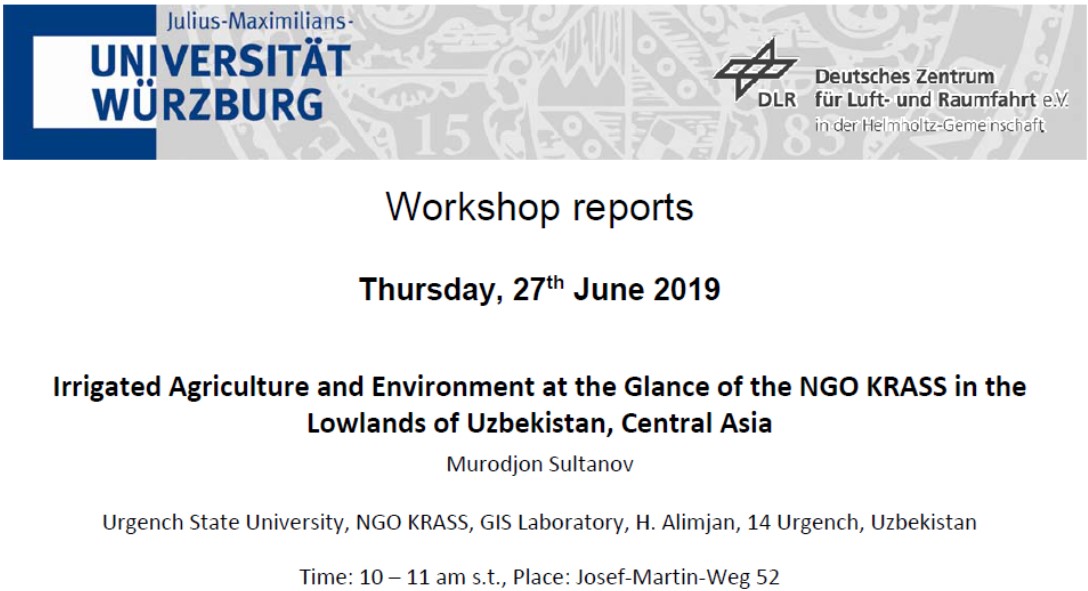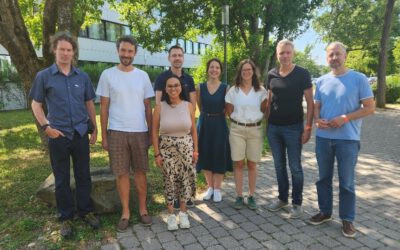We are glad to announcing our next workshop at the Department of Remote Sensing for Thursday, 27th June 2019.
The presentation will be about
Irrigated Agriculture and Environment at the Glance of the NGO KRASS in the Lowlands of Uzbekistan, Central Asia
Abstract
The Khorezm region of Uzbekistan is located in the epicenter of the environmental disaster in Central Asia. This is mainly due to the regional expansion of irrigated agriculture during Soviet Union times, which has altered natural hydrology and environmental services in the Amu Darya delta leading to salinization and widespread desertification, known as ‘Aral Sea Syndrom’. The NGO KRASS (Khorezm Rural Advisory Support Service) has been established in 2008 within the frame of the ZEF/UNESCO Khorezm project in Urgench State University. KRASS is acting to promote rational use of land and water resources for the sustainable development, and mitigation of environmental problems by disseminating innovative, modern and improved agricultural and irrigation methods and techniques. It further aims to strengthen agricultural knowledge and skills of the farming population and the youth of rural Uzbekistan. GIS techniques and multi‐source remote sensing spectral information have enormous potential to determine, monitoring, and mapping agricultural land use, particularly land use types, and crop yield modelling for further better management of land and water resources in the region.
Title of presentation: Irrigated Agriculture and Environment at the Glance of the NGO KRASS in the Lowlands of Uzbekistan, Central Asia
Presenter: Murodjon Sultanov from the Urgench State University and NGO KRASS (Uzbekistan) and guest scientist in the CAWa project at the Department of Remote Sensing
Date: Thursday, 27th June Time: 10 – 11:00 am s.t. Place: Josef-Martin-Weg 52 (1), Campus Hubland Nord, Würzburg (place may be subject to change)
Presentation language: English Slides: English
All interested persons are cordially invited! We are looking forward to seeing you.








